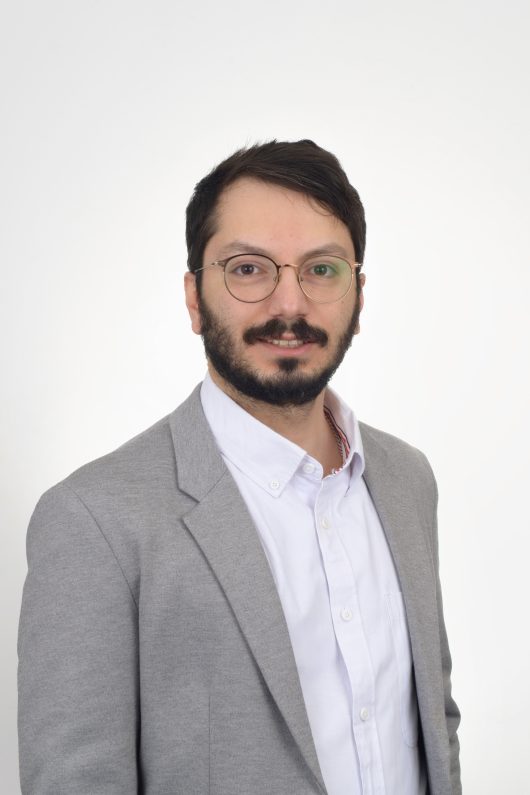Carlos Silva
Director
Director
Carlos Silva is a full professor in the Department of Physics at the University of Montreal. He is an expert in the field of ultrafast and nonlinear spectroscopy of advanced materials. Renowned worldwide, he has also become an undisputed reference in quantum physics. He has been serving as the director of the Courtois Institute since July 1, 2023.
With a dual bachelor’s degree in physics and chemistry, as well as a Ph.D. in chemical physics, Carlos Silva has an extensive track record. Throughout his career, he has been affiliated with numerous academic institutions. He has worked as a postdoctoral fellow and subsequently as EPSRC Advanced Research Fellow at the University of Cambridge and as a visiting professor at Imperial College London, the Italian Institute of Technology, and the National Autonomous University of Mexico. From 2005 to 2018, he was a professor in the Department of Physics at UdeM, where he obtained a Canada Research Chair in Organic Semiconductor Materials and established an ultrafast laser spectroscopy laboratory. Since 2017, he held the position of professor of chemistry, physics and materials science at the Georgia Institute of Technology, where he was also co-director of the Center for Organic Photonics and Electronics (COPE), a research center that brings together researchers from the departments of chemistry, physics, materials, mathematics, and electrical, chemical, and mechanical engineering.
He has an ambitious vision for the Courtois Institute, where he aims to establish a culture of collaborative and multidisciplinary interaction to ensure impactful scientific output. He intends to leverage the expertise of the departments of physics, chemistry, and computer science to generate new impactful knowledge at the interface between materials sciences and artificial intelligence. He endeavours to establish the Institute as an internationally recognized environment conducive to world-leading research in fields that intersect novel materials, quantum physics, robotics, and artificial intelligence.
As the director of the Courtois Institute, he plans to establish partnerships with various Canadian and international institutions while promoting multidisciplinary research. “I consider the Courtois Institute to be a transformative organization that will elevate us to the top of the Canadian research community. The objective is to achieve ambitious yet credible growth to reach the excellence goals we have set for ourselves,” he says.
Within the Institute, Carlos Silva will continue his research on the optical properties of materials used in quantum technologies, such as photonics.
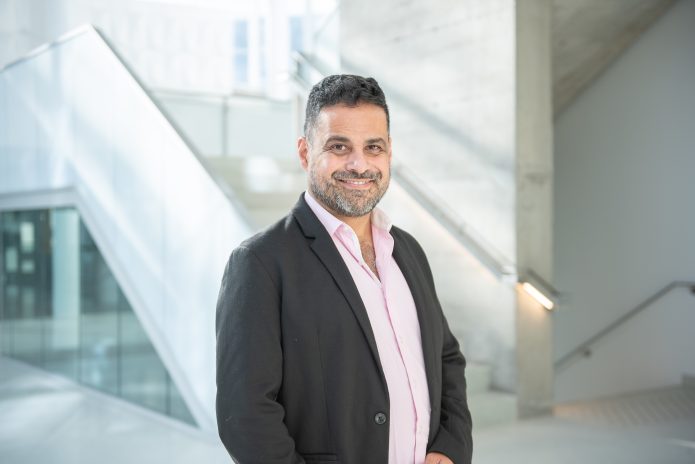
Hlér Kristjánsson
Computer Science Departement
I am interested in the foundational structures of quantum theory and how they can be used in novel ways for advantages in quantum information processing, in particular to quantum simulation. Currently, my main interests are in understanding causality in quantum theory (including indefinite causal order), as well as in developing a paradigm of higher-order quantum computation, the quantum analogue of functional programming. These new tools have applications in fields ranging from quantum algorithms, simulation of physical systems and quantum machine learning, to delegated quantum computation and quantum communication. Since 2025, I am an Assistant Professor in Computer Science and Research Chair of Institut Courtois at Université de Montréal, an associate member of Mila – Québec AI Institute, IVADO researcher, and affiliate member of Perimeter Institute for Theoretical Physics.
I grew up in Akureyri, Iceland, and later in Cambridge, UK. In 2018, I completed my undergraduate and master’s degree in Physics at Imperial College London, UK, and did my master’s thesis at the University of Freiburg, Germany, on a one-year Erasmus exchange program, in the group of Prof Dr Andreas Buchleitner. In 2022, I completed my PhD in Computer Science at the University of Oxford, under the supervision of Prof Giulio Chiribella and Prof Jonathan Barrett, including several months as a visiting PhD student at the University of Hong Kong. In 2021, alongside my PhD, I worked as an independent research consultant in quantum communications for Ofcom, the UK Office for Communications. From 2022-23, I was a postdoctoral researcher at the University of Tokyo, in the group of Prof Mio Murao, and from 2023-24 an independent postdoctoral research fellow in quantum foundations and quantum information at the Perimeter Institute and the Institute for Quantum Computing in Waterloo, ON.
In addition to science, I have also studied courses in violin performance as an Ash Music Scholar at the Royal College of Music, London, UK, in German at Albert-Ludwigs-Universität Freiburg, Germany, in French at Université de Montréal, and in Chinese as a Huayu Scholar at the National Kaohsiung Normal University, Taiwan. As a musician, I have co-composed and released an original album, and performed as a violinist at various venues. In my spare time, I enjoy cooking and mindfulness meditation.
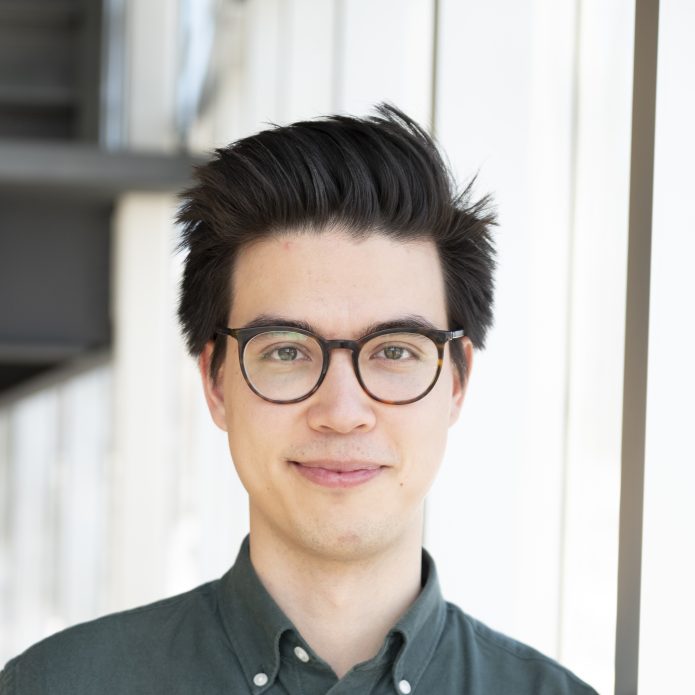
Mickaël Dollé
Creator of recyclable batteries
Department of Chemistry
Lithium-ion batteries are being used in a growing number of everyday devices—cellphones, laptops, electric vehicles—and it is important to reduce their life-cycle environmental impacts reduced to a minimum. Mickaël Dollé is working to make them greener. He has already patented a technique for recovering cathode materials from lithium-ion batteries to make new batteries without generating waste. Batteries can now be produced in a circular economy-type closed loop.
A chemist by training, Dollé has a general interest in ecodesign: how batteries can be made with less energy and greener materials. One way is to replace fluorine-based materials that require the use of toxic solvents and complicate recycling with new polymers. In 2020, Dollé and his colleagues designed a battery made from water and wood, an achievement that was selected as the scientific discovery of the year by the readers of Québec Science magazine.
Before joining the University of Montreal in 2014, Dollé completed postdoctoral studies at the Lawrence-Berkeley National Laboratory and the Max Planck Institute for Solid State Research in Stuttgart. He also worked as a researcher at the CNRS in France.
The research program of his Courtois Chair focuses on high-throughput screening of glasses and glass ceramics through the automation of synthesis and physicochemical characterization, supported by simulations. While there are several tools available to predict the existence and properties of crystalline materials, especially for batteries, there is no equivalent tool for glasses and glass ceramics. Machine learning algorithms can use this database to assist us in the rational design and development of glasses and glass ceramics with controlled properties and/or new phases.
Solid-state chemistry, materials science, and electrochemistry will be at the core of the activities, with a strong interest in understanding the relationship between development (synthesis and processing)/microstructure/properties in order to improve existing materials or create new ones.
The targeted outcomes include generating fundamental knowledge related to energy transition and the exploration of innovative concepts in order to design novel materials for future technologies.
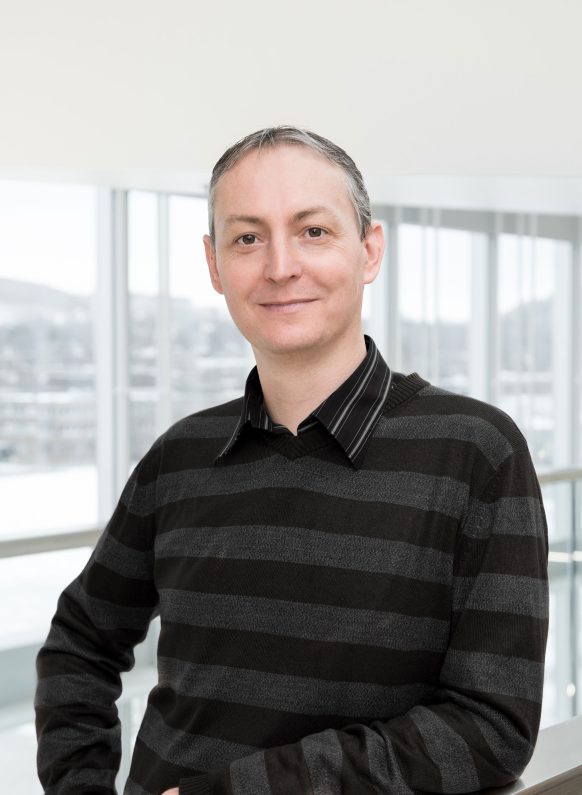
William Witczak-Krempa
Quantum theorist
Department of Physics
William Witczak-Krempa is interested in materials that display quantum properties at low temperatures. For example, some materials lose electrical resistance and become superconductors, which have important practical applications, from lossless electricity transmission to the manufacture of extremely powerful magnets.
However, low temperatures limit large-scale production. Could quantum materials be created at higher temperatures and be made more accessible to humans? William Witczak-Krempa’s team is tackling the question using a variety of mathematical and numerical tools, including artificial intelligence.
Understanding matter at the quantum level is essential for, among other things, the creation of a quantum computer, the device physicists and computer scientists dream of. Its computing power would far exceed that of any existing computer.
William Witczak-Krempa came to the University of Montreal after completing two postdoctoral fellowships, one at the Perimeter Institute in Waterloo and the other at Harvard University. He is the Canada Research Chair in Quantum Phase Transitions and a member of the Regroupement québécois sur les matériaux de pointe (RQMP), and the Centre de recherches mathématiques (CRM).
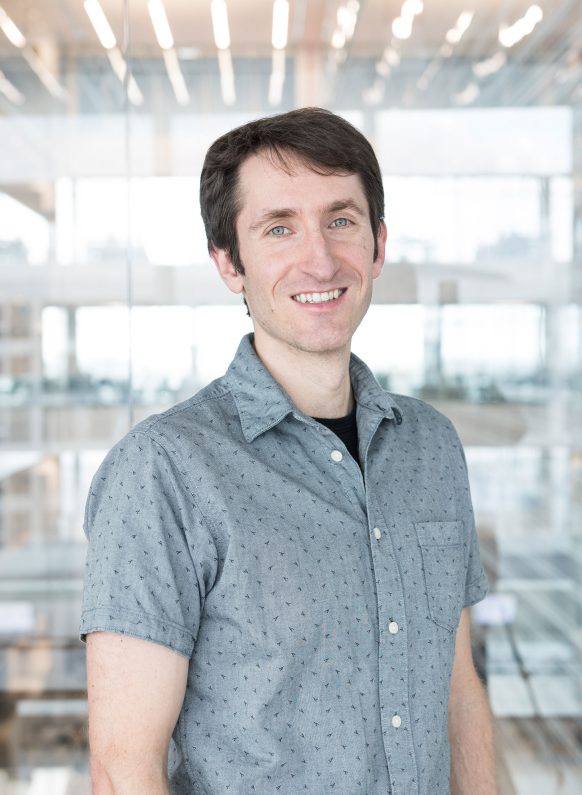
Carlos Silva
Director
Director
Carlos Silva is a full professor in the Department of Physics at the University of Montreal. He is an expert in the field of ultrafast and nonlinear spectroscopy of advanced materials. Renowned worldwide, he has also become an undisputed reference in quantum physics. He has been serving as the director of the Courtois Institute since July 1, 2023.
With a dual bachelor’s degree in physics and chemistry, as well as a Ph.D. in chemical physics, Carlos Silva has an extensive track record. Throughout his career, he has been affiliated with numerous academic institutions. He has worked as a postdoctoral fellow and subsequently as EPSRC Advanced Research Fellow at the University of Cambridge and as a visiting professor at Imperial College London, the Italian Institute of Technology, and the National Autonomous University of Mexico. From 2005 to 2018, he was a professor in the Department of Physics at UdeM, where he obtained a Canada Research Chair in Organic Semiconductor Materials and established an ultrafast laser spectroscopy laboratory. Since 2017, he held the position of professor of chemistry, physics and materials science at the Georgia Institute of Technology, where he was also co-director of the Center for Organic Photonics and Electronics (COPE), a research center that brings together researchers from the departments of chemistry, physics, materials, mathematics, and electrical, chemical, and mechanical engineering.
He has an ambitious vision for the Courtois Institute, where he aims to establish a culture of collaborative and multidisciplinary interaction to ensure impactful scientific output. He intends to leverage the expertise of the departments of physics, chemistry, and computer science to generate new impactful knowledge at the interface between materials sciences and artificial intelligence. He endeavours to establish the Institute as an internationally recognized environment conducive to world-leading research in fields that intersect novel materials, quantum physics, robotics, and artificial intelligence.
As the director of the Courtois Institute, he plans to establish partnerships with various Canadian and international institutions while promoting multidisciplinary research. “I consider the Courtois Institute to be a transformative organization that will elevate us to the top of the Canadian research community. The objective is to achieve ambitious yet credible growth to reach the excellence goals we have set for ourselves,” he says.
Within the Institute, Carlos Silva will continue his research on the optical properties of materials used in quantum technologies, such as photonics.

Delphine Bouilly
Associate Director
Associate Director
Delphine Bouilly is committed to developing bionoelectronics, an emerging interdisciplinary approach that aims to harness the exceptional electrical properties of nanomaterials to detect, probe and understand the molecules that make up the living world.
In her laboratory, her team designs electronic circuits using low-dimensional materials such as carbon nanotubes (1D) or graphene (2D). These circuits enable them to measure the subtle interactions between these materials and biological molecules, such as DNA or proteins, by means of fine electrical current fluctuations. To achieve this, Delphine Bouilly and her team are developing new methods based on miniaturization, automation and scaling to synthesize, assemble, measure and model nanomaterials in complex aqueous environments and compact lab-on-a-chip setups.
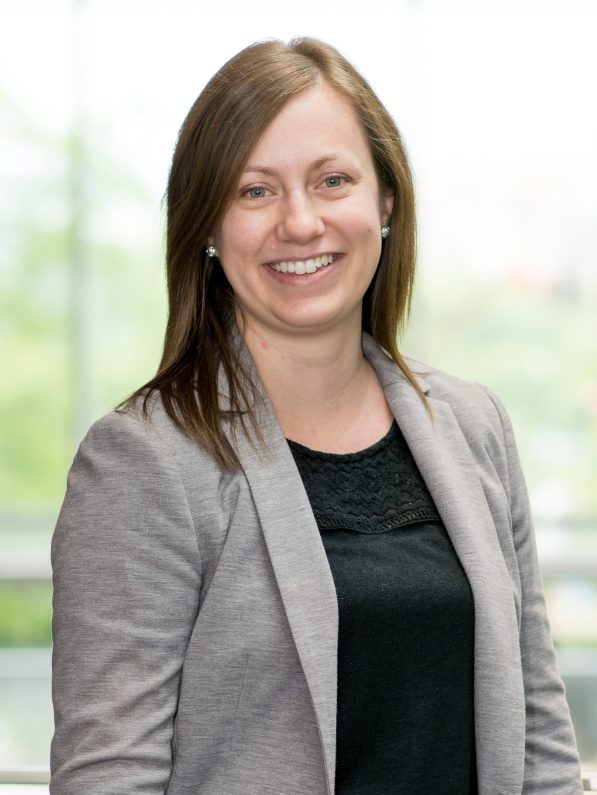
Nathalie Tang
Coordinator
Coordinator
Nathalie Tang holds a PhD in physical chemistry from the Université de Montréal and has over 8 years of experience as a scientist and project manager in an academic research environment. She has managed multidisciplinary projects involving students, professors and professionals in the fields of medicine, engineering and material science. Over the years, she has developed an expertise on the characterization of nanomaterials and their application in the biotechnology field. Following her curiosity for artificial intelligence (AI), she joined Mila, the Quebec Institute of Artificial Intelligence as a coordinator for the scientific direction and strategic initiatives. With her expertise as a scientist and project coordinator, coupled with her knowledge of AI and materials, she is the ideal candidate to assist the director of the Institut Courtois in making the institute become a premier institute for pioneering the discovery of new materials through the application of automation and AI.
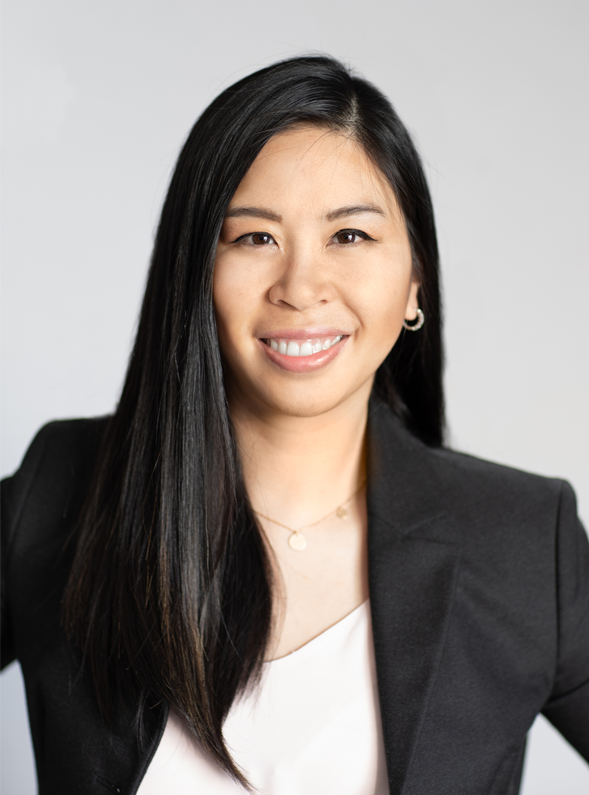
Our researchers share a determination to address some of the most complex challenges facing society by accelerating the process of discovery of new materials and contributing to their development.
Ahmad Hamdan
Department of Physics
Ahmad Hamdan has been a professor in the Department of Physics at the Université de Montréal since 2017. He specializes in the physics of plasmas, with a particular focus on those generated in a liquid medium. The plasmas he studies exhibit novel properties in terms of temperature (1000s K), pressure (10s bar), species density (1017-19 cm-3) and lifetime (100s ns). Unlike conventional plasmas, liquid plasmas represent extremely efficient and environmentally-friendly processes for the production of nanomaterials, among other applications.
The inherent flexibility of these processes enables plasmas to be initiated and maintained in various liquids, including water, hydrocarbons and cryogenic liquids. In addition, the use of electrodes with a variety of chemical compositions contributes to this versatility. These approaches have led to the fabrication of a wide range of nanomaterials, including nanocomposites, materials with novel crystallographic phases, and binary and tertiary metal nanoalloys.
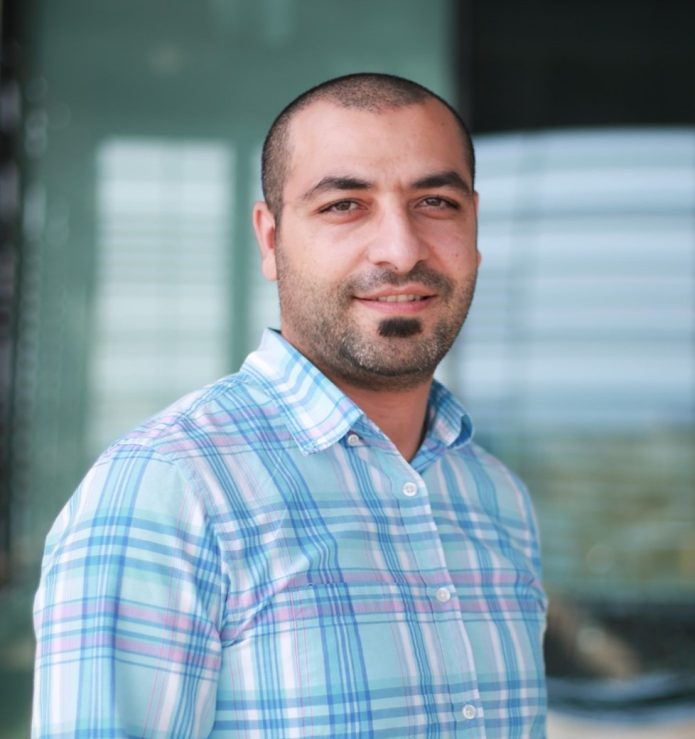
Alejandro Hernandez-Garcia
Department of Computer Science and Operations Research
Alex Hernandez-Garcia is an assistant professor at the Université de Montréal at the Département d’informatique et de recherche opérationnelle (DIRO) and at Mila (Quebec Artificial Intelligence Institute). He grew up in Madrid (Spain) and lived in Berlin (Germany) during his PhD studies, before moving to Montréal to work with Yoshua Bengio and David Rolnick as a postdoctoral researcher. His research interests are interdisciplinary and after working at the intersection of machine learning, neuroscience and cognitive science, he currently works on machine learning research for scientific applications to tackle the climate crisis and health challenges.
For example, he works on developing generative methods, such as GFlowNets, and active learning algorithms for materials and drug discovery. In particular, he researches multi-fidelity active learning methods, crystal structure generation, electrocatalyst design or molecular conformation sampling. Besides his research, he is a strong proponent of open science in the broadest sense, and tries to contribute to it by getting involved in discussions about how to make science more inclusive, equitable, open, reproducible, transparent and environmentally conscious.
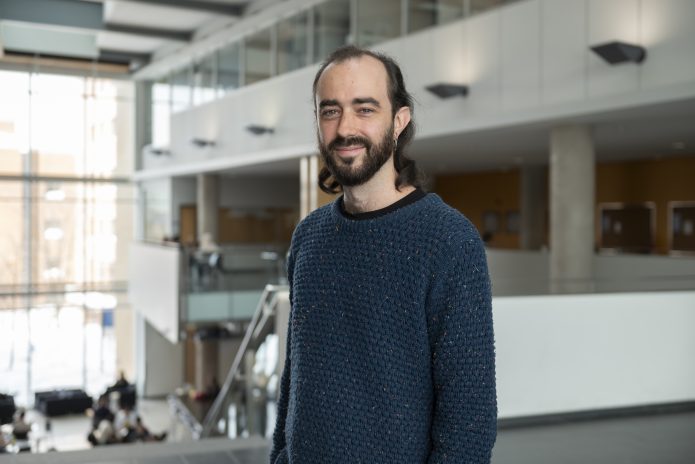
Andrea Bianchi
Department of Physics
Bianchi’s group uses solid-state chemistry methods to create and try to understand novel unconventional superconductors and magnets. Our tools to study these systems include thermodynamic measurements, as well as neutron scattering and muon spectroscopy.
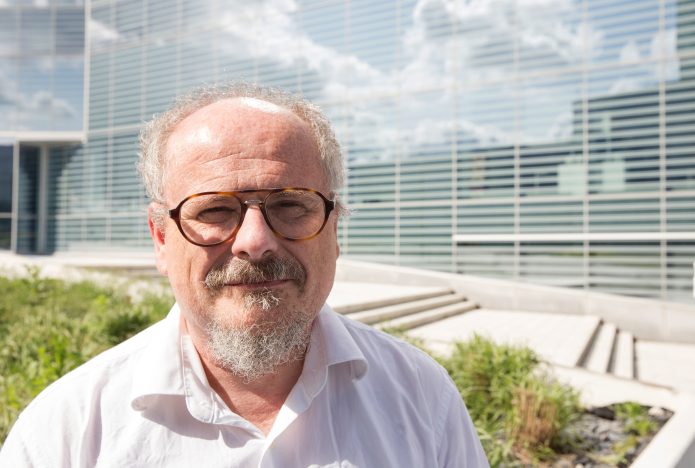
Antonella Badia
Department of Chemistry
Antonella Badia’s research focuses on two-dimensionally organized molecular assemblies. Using metal surface-binding organic ligands, her group produces redox-active self-assembled monolayers to electrochemically trigger and modulate processes at interfaces for applications such as actuators, sensors, and molecular electronics.
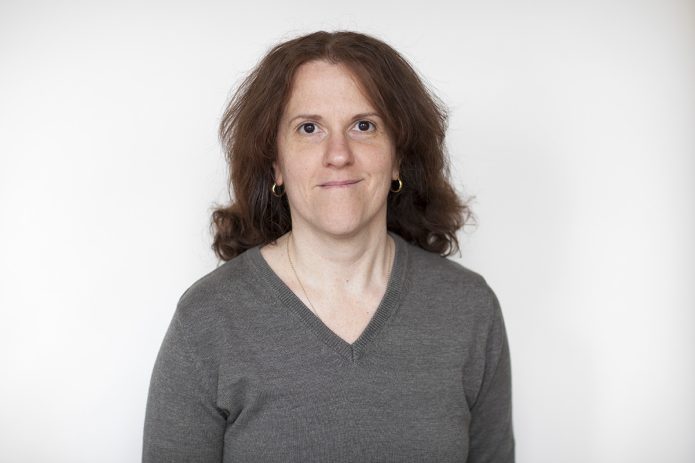
Audrey Laventure
Expert in functional materials for 3D printing
Department of Chemistry
Audrey Laventure is a specialist in materials chemistry, particularly so-called “amorphous” materials, a term that is opposite to her passion for her discipline. Her work, at the crossroads of chemistry and physics, explores the emerging field of 3D printing. Laventure is studying the behaviour of materials in the context of additive manufacturing to develop an advanced understanding of the material organization to create functional 3D objects.
3D printing involves complex architectures. One of the objectives of the Laventure research group is to transition from complex yet passive architectures, to complex and functional ones.
Laventure’s research is focused on understanding how to modulate the properties of materials through molecular assembly. Artificial intelligence makes it possible to accelerate the high throughput screening of the processing conditions materials that can be used in 3D printing to endow them with new functionalities.
After completing her Ph.D. as a Vanier scholar at the Université de Montreal and a NSERC postdoctoral fellowship at the University of Calgary, Audrey Laventure returned to her alma mater in 2020 to start her research laboratory. She holds the Canada Research Chair Tier II in Functional Polymer Materials.
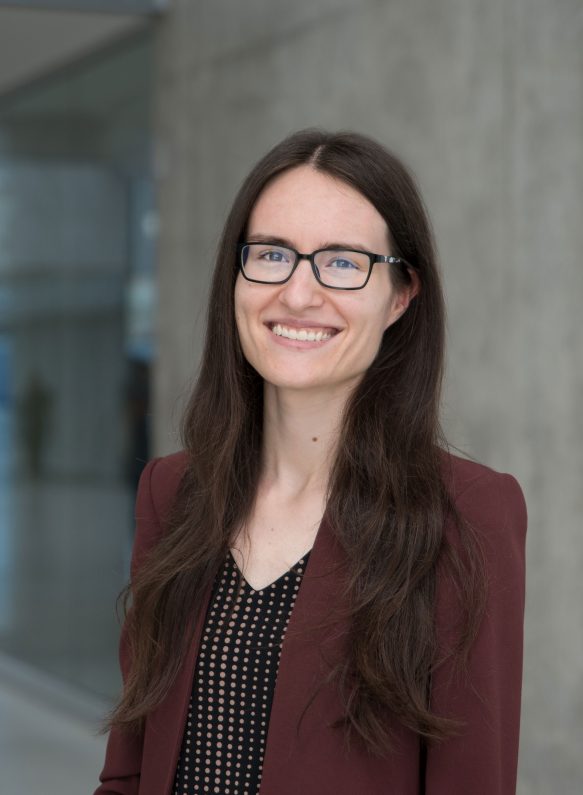
Bang Liu
Department of Computer Science and Operations Research
Bang Liu is deeply fascinated by the intricacies of natural and artificial intelligence. As he explores the principles of intelligence, he also leverages his expertise in applying AI techniques to various scientific fields, with a pronounced focus on materials science.
With a commitment to creating safe, controllable, and interpretable AI systems, Bang’s extensive knowledge of natural language processing (NLP) and multimodal & embodied learning is crucial. He’s ardently passionate about using AI’s transformative power in key areas such as materials science, health, and Virtual Reality (VR). This interdisciplinary approach aims to forge new discoveries and solutions by merging AI with other scientific disciplines.
In August 2020, Bang Liu became an Assistant Professor at the University of Montreal’s Department of Computer Science and Operations Research (DIRO). He plays an active role in the RALI laboratory, focusing on NLP research. He’s also an associate member of the Mila – Quebec Artificial Intelligence Institute and holds a Canada CIFAR AI Chair. Bang’s academic journey began with a B.Engr. from the University of Science and Technology of China (USTC) in 2013, followed by M.S. and Ph.D. degrees from the University of Alberta in 2015 and 2020, respectively.
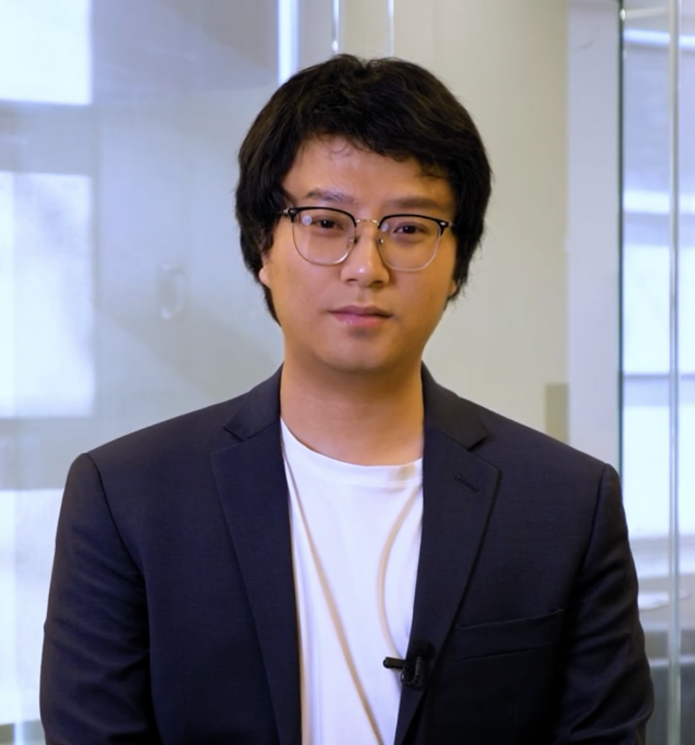
Christian Pellerin
Department of Chemistry
Spider silks, mother-of-pearl, cell membranes and tree fibrils are all natural materials with exceptional properties thanks to a combination of molecular order and disorder. Chemists also exploit molecular order to design functional materials such as bullet-proof vests and display devices.
It is in this context that Christian Pellerin and his team fabricate partially ordered molecular materials and study them to understand how to optimize their performance. Their work focuses on highly oriented electrospun fibers, light-induced order in photoactive materials, order in ultrathin films (with Antonella Badia), and amorphous molecular materials that resist ordering. The group specializes in the physicochemical characterization of materials, with particular emphasis on vibrational spectroscopy. On a more applied front, the Pellerin team works with industrial and governmental partners to improve polymer recycling and to create materials useful for national defence.
After completing his PhD at Université Laval and a postdoctoral fellowship at the University of Delaware, Christian Pellerin joined the Université de Montréal’s Department of Chemistry in 2005, where he founded his Materials Spectroscopy Laboratory. He is also the director of the LCMP platform (Laboratory for polymer materials characterization).
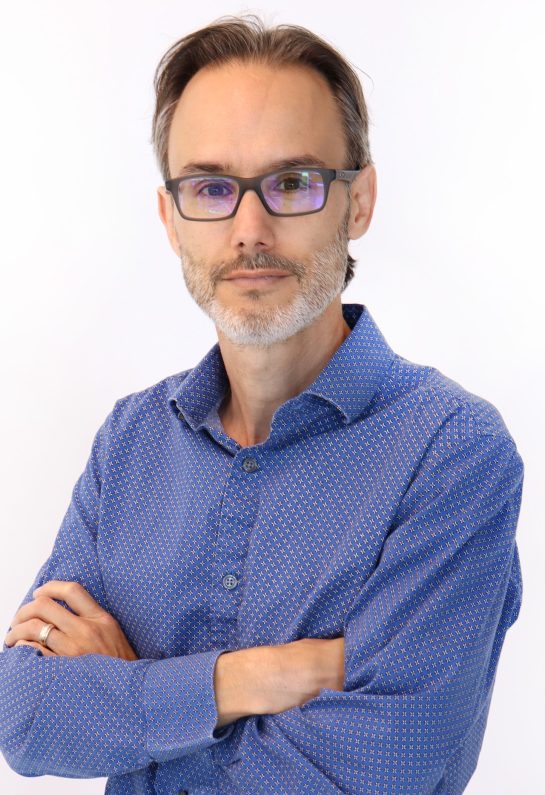
Delphine Bouilly
Associate Director
Associate Director
Delphine Bouilly is committed to developing bionoelectronics, an emerging interdisciplinary approach that aims to harness the exceptional electrical properties of nanomaterials to detect, probe and understand the molecules that make up the living world.
In her laboratory, her team designs electronic circuits using low-dimensional materials such as carbon nanotubes (1D) or graphene (2D). These circuits enable them to measure the subtle interactions between these materials and biological molecules, such as DNA or proteins, by means of fine electrical current fluctuations. To achieve this, Delphine Bouilly and her team are developing new methods based on miniaturization, automation and scaling to synthesize, assemble, measure and model nanomaterials in complex aqueous environments and compact lab-on-a-chip setups.

François Schiettekatte
Department of Physics
François has been a professor in the Department of Physics at the University of Montreal since the year 2000. He specializes in the synthesis and characterization of semiconductors and amorphous materials, particularly through ion beam analysis: by bouncing particles produced by an accelerator, one can identify the atoms that make up a sample and their distribution in depth at the nanometer scale. This is very useful for determining whether thin-film compounds synthesized for a wide range of applications, from microelectronics to wear-resistant coatings for aircraft reactors, have the desired values. In recent years, he has been interested in the fabrication of low-noise mirrors, particularly in the context of gravitational wave detectors (GWD). Indeed, in several ultra-high precision systems such as quantum computers, atomic clocks, and GWDs, sensitivity is limited by the fact that the materials of the mirrors can reconfigure or their properties can otherwise fluctuate, causing noise. His group is therefore searching for materials that minimize these phenomena while meeting the many other constraints imposed by these applications.
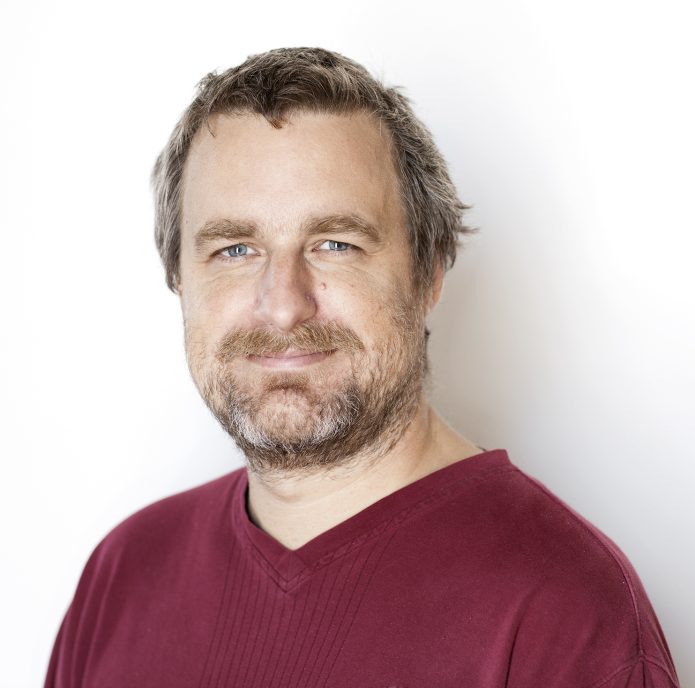
Gilles Brassard
Pioneer of quantum information science
Department of Computer Science and Operations Research
Gilles Brassard is considered the founding father of quantum information science in Canada and one of its earliest pioneers in the world. Working with physicist Charles Bennett (IBM Research), he created a protocol that laid the foundations for quantum cryptography, which is the key to unconditionally secure communications. In 1992, he developed the theoretical protocol for quantum teleportation, in collaboration with Bennett and four other colleagues including Claude Crépeau, now at McGill University. In 1998, this theory was verified experimentally by another team of researchers, a feat that was selected by the journal Science as one of the 10 Breakthroughs of the year. In 2018, those two discoveries earned him and Charles Bennett the Wolf Prize in Physics, often considered a forerunner to the Nobel Prize. He was the first Canadian to be awarded the Wolf Prize in Physics.
Brassard’s work is foundational in quantum information science, an emerging field with the potential to create computers immeasurably more powerful than conventional computers by exploiting sometimes-counter-intuitive manifestations of quantum theory.
Gilles Brassard is a Montreal native who has been passionate about mathematics since he was a child. He enrolled at the Université de Montréal at age 13 to earn a bachelor’s degree and then a master’s degree in computer science. In 1979, he completed a Ph.D. in cryptography at Cornell University and became an assistant professor at the Université de Montréal the same year. He held the Canada Research Chair in Quantum Information Science for 21 years from 2001 until 2021. He founded and is now the scientific director of INTRIQ, the Transdisciplinary Institute for Quantum Information.
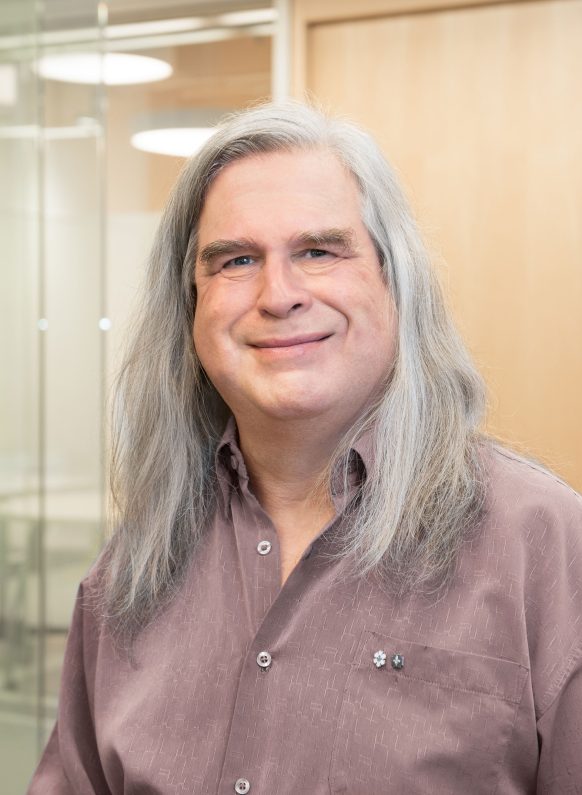
Glen Berseth
Robot Learning
Department of Computer Science and Operations Research
Glen Berseth wants to go beyond machines that only perform repetitive tasks that people showed them how to complete, and instead develop robots that can learn to solve problems more independently, in the real world, based on own their experiences.
Industry experts and researchers in various fields deal with complex processes and designs that can benefit from automated feedback loops for testing and improvement. Prof. Berseth is working to expand the applications of recent artificial intelligence methods to speed up and improve the accuracy of development process for creating chemicals and new materials. These have many potential uses, from constructing greener buildings at lower cost to producing food more efficiently.
Glen Berseth joined the University of Montreal in the summer of 2021 and Mila, the Quebec Artificial Intelligence Institute. He previously did postdoctoral research at the Berkeley Artificial Intelligence Research Lab.
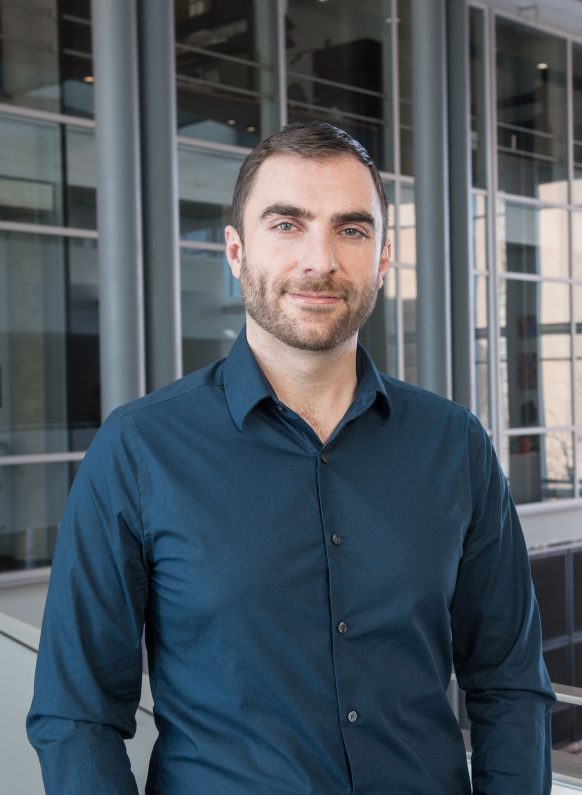
Guillaume Rabusseau
Department of Computer Science and Operations Research
Guillaume Rabusseau is associate professor in the Department of Computer Science and Operations Research (DIRO) at Université de Montréal, core member of Mila and a Canada CIFAR AI Chair holder.
His research focuses on the intersection of machine learning, theoretical computer science and multilinear algebra. In particular, he specializes in exploring the connections between tensors, machine learning. He develops efficient learning schemes for structured data by leveraging linear and multi-linear algebra.
In general, he is interested in tensor decompositions techniques, using tensor networks for machine learning, quantum ML, Kernel methods, (weighted) Automata Theory and probabilistic context free grammars, and non-linear computational models on strings, trees, and graphs.
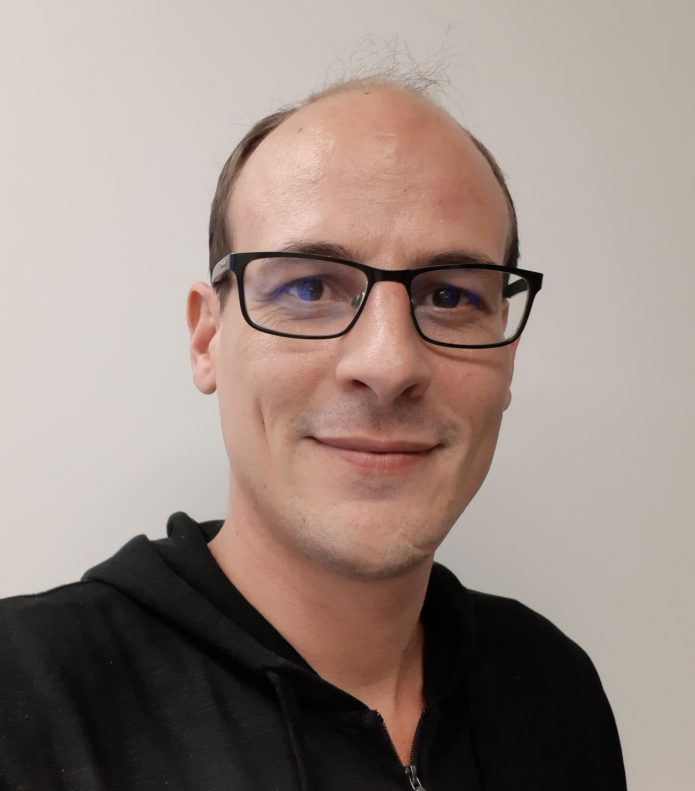
Hélène Lebel
Department of Chemistry
The research program of Professor Lebel’s group focuses on the development of new synthetic methodologies aimed at creating catalytic and innovative processes, particularly using continuous flow chemistry. Additionally, her group is interested in synthesizing and studying new water-soluble organic electrolytes for redox flow batteries.
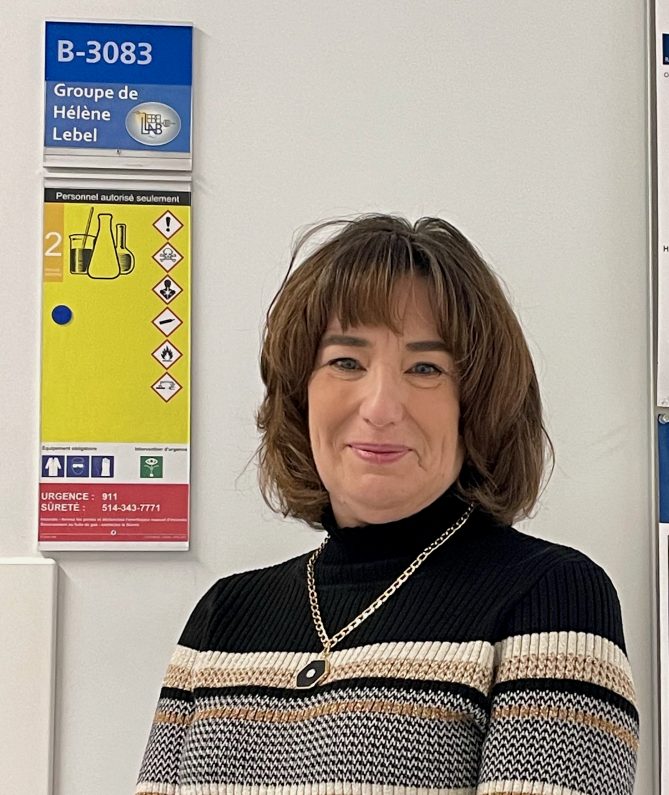
Houari Sahraoui
Computer Science Departement
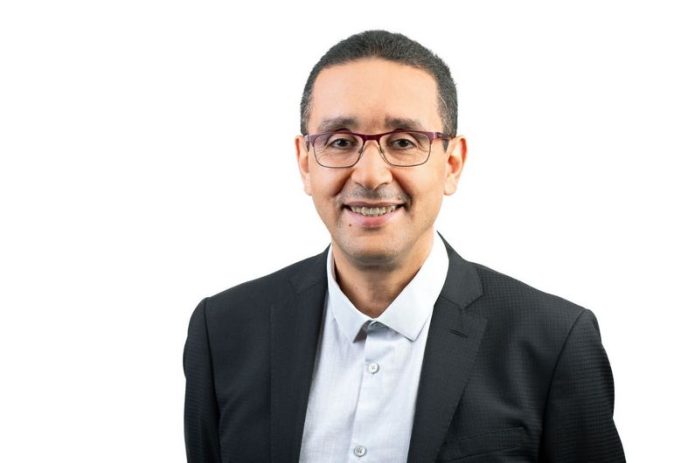
James Wuest
Molecule organizer
Department of Chemistry
James Wuest wants to learn how the properties of materials depend on the molecules they contain and on how they are organized. Once the basic rules are mastered, novel materials can be built by design from molecular components specifically synthesized for the purpose.
The ability to create on the molecular scale led Wuest to choose a career in organic chemistry. Today, he is a professor in the Department of Chemistry at the University of Montreal and is internationally recognized for studies of molecular organization, both fundamental and applied. The field is poised to use advances in artificial intelligence in many ways, such as in controlling how molecules are arranged in crystalline solids.
Many challenges lie ahead. In some fields, masses of data are acquired quickly, but in materials science information is gathered slowly. At the same time, opportunities for making new materials are unlimited. The tools of artificial intelligence needed to operate in this arena have yet to be created, and the prospects for advances resulting from collaboration are exciting.
James Wuest is the Canada Research Chair in Molecular Materials. In 2013, he was awarded the Prix Marie-Victorin, the Québec government’s highest honour in the sciences. He taught at Harvard University, where he earned his Ph.D., before accepting a position at the University of Montreal in 1981.
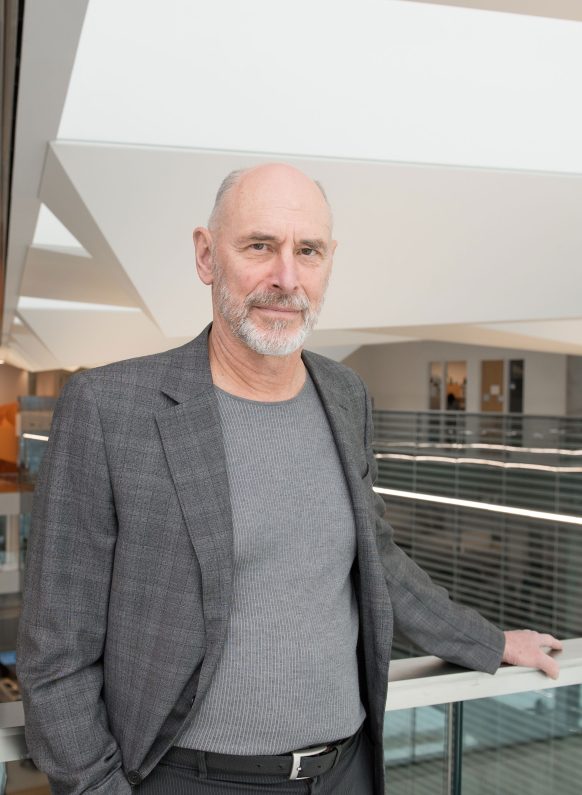
Jean-François Masson
Department of Chemistry
The Masson group is developing new plasmonic nanomaterials for applications in molecular detection, catalysis, and photothermal conversion. They use spectroscopic methods (Raman and surface plasmonics) and optical and electron microscopy tools to characterize nanomaterials. They are developing new automated feedback loop synthesis methods controlled by artificial intelligence. Their group is also interested in using artificial intelligence to extract molecular information through spectroscopy.
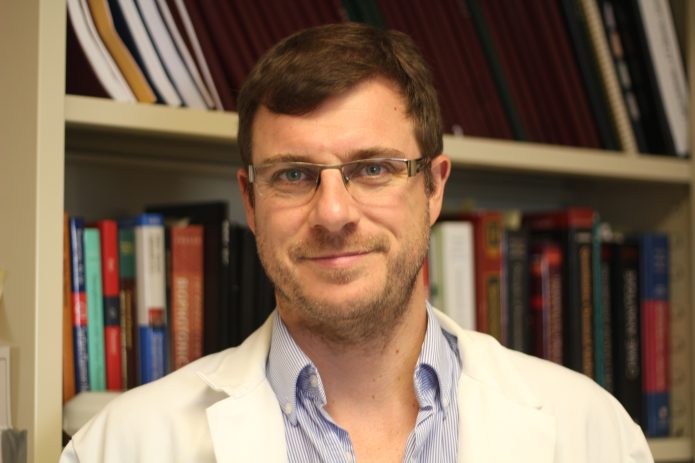
Kevin Wilkinson
Department of Chemistry
Our group works in the field of environmental nanotechnology. Our two main research areas include the fate of manufactured nanomaterials in environmental and biological matrices and the characterization of nanomaterials and nanoparticles in these matrices. Furthermore, due to our need to acquire data at high temporal (<ms) and spatial (<few microns) resolutions, we are increasingly dependent on innovative technologies for the acquisition, processing, analysis, and sharing of massive data, notably through multiparametric statistics (e.g., cluster analysis, principal component analysis) or new techniques based on artificial intelligence.
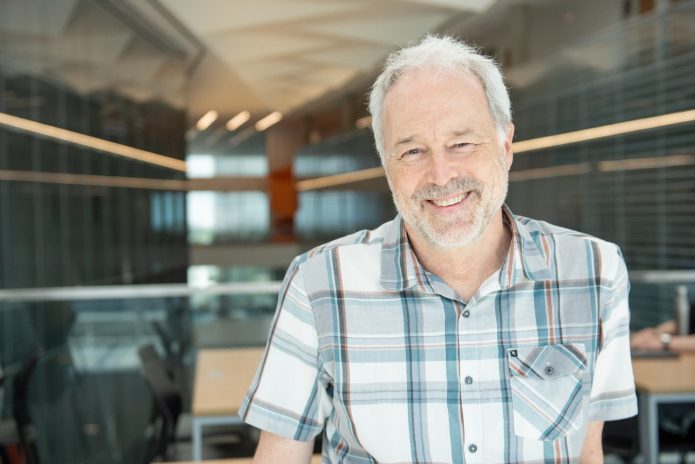
Liam Paull
Department of Computer Science and Operations Research
Liam Paull is an associate professor at the University of Montreal and co-director of the Montreal Embedded Robotics and AI Laboratory (REAL). His laboratory focuses on robotics problems, including the creation of world representations, modeling uncertainty, and developing better approaches to teach new tasks to robotic agents (e.g., through simulation or demonstration).
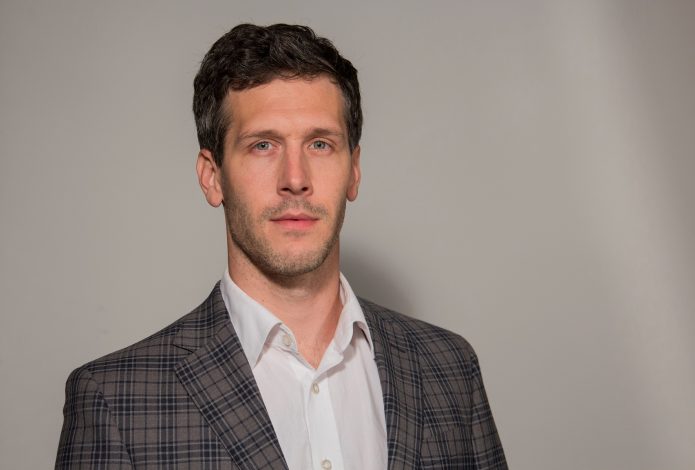
Luc Stafford
Plasma specialist
Department of Physics
Luc Stafford, professor in the Department of Physics, is interested in developing plasma-based processes to synthesize or add new functionalities to materials.
In the context of the Canada Research Chair in the Physics of Highly Reactive Plasmas, he works on exploiting the unique properties of plasmas to develop the materials and processes of the future, in an environmentally responsible manner. Building on fundamental knowledge of plasmas and their interactions with organic and inorganic materials, he seeks to achieve atomic-level control of materials and processes, which is important for the development of many new technologies, including those in the quantum realm.
In 2020, Luc Stafford and his colleagues designed a new-generation battery made of water and wood, a feat that was chosen the scientific discovery of the year by the readers of Québec Science magazine.
Luc Stafford is also a special advisor to the Vice-Rector for Research, Discovery, Creation and Innovation. He is responsible for the Building a Sustainable Future innovation lab, which brings together multidisciplinary groups to reflect on sustainable development issues in research and education.
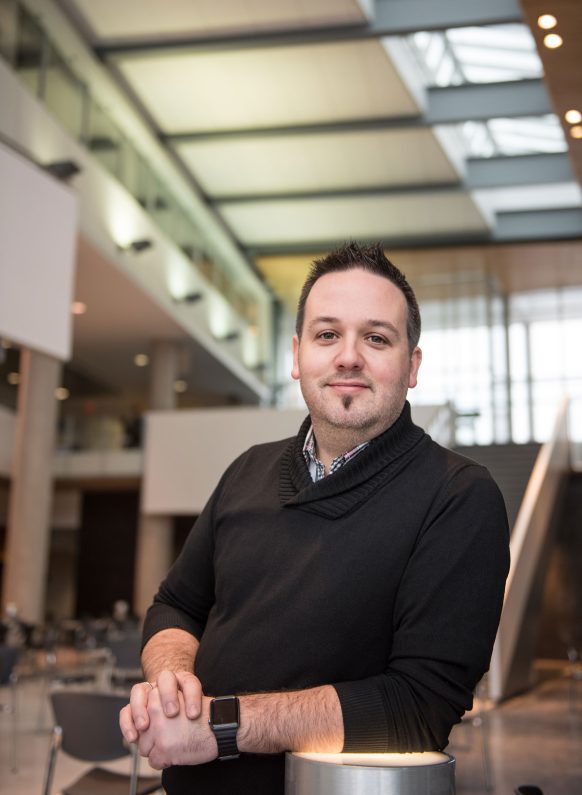
Luc Vinet
Department of Physics
Professor Vinet’s work broadly focuses on the use of symmetries in quantum theory in two main aspects: 1) the design of spin chains capable of realizing qubit transport and entanglement generation, and 2) the study of entanglement in fermionic systems on graphs using methods associated with algebraic combinatorics and signal processing (particularly those developed to address time and frequency limitations).
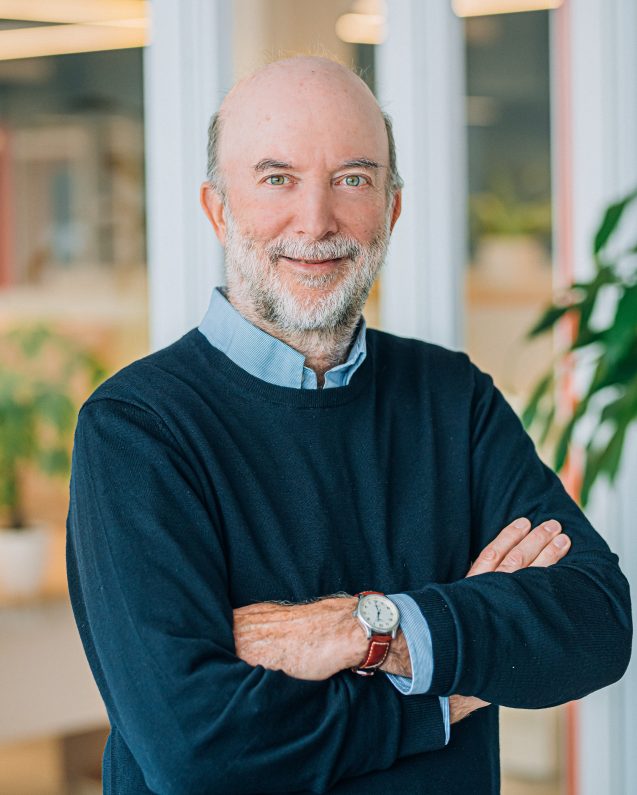
Manu Paranjape
Department of Physics
Manu Paranjape is a professeur in the Department of physics and he is interested in:
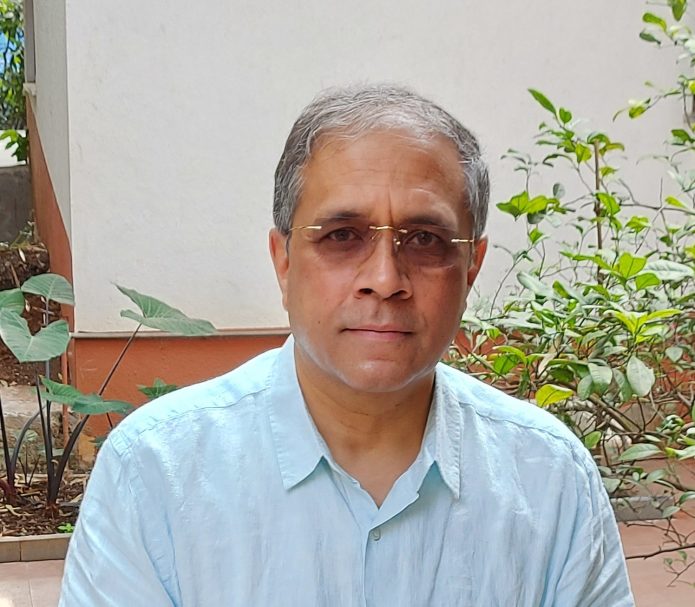
Michel Côté
Department of Physics
My group’s expertise lies in electronic structure calculations using methods such as density functional theory. This approach uses quantum mechanics to calculate material properties. Our approaches are based on first physics principles and therefore, require no experimental parameters. As a result, we can predict the properties of new materials and explore new ideas to deduce the most promising leads. Our calculations are also highly valued by our experimental collaborators, as we can calculate the properties of the systems they are studying without theoretical bias. My group members are developers of the ABINIT open-source code that implements these approaches. Recently, our work has led us to use machine learning methods to increase the range of systems we can simulate. Our main areas of interest are nanomaterials, superconductors and battery materials.
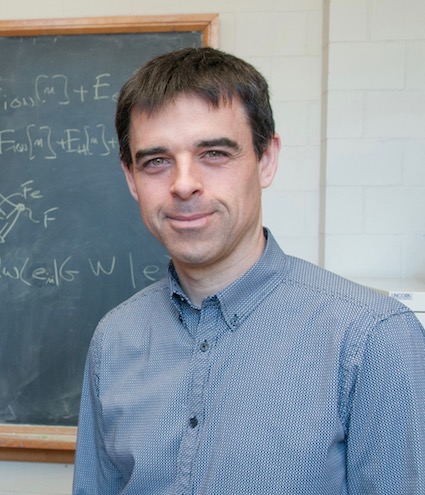
Mickaël Dollé
Creator of recyclable batteries
Department of Chemistry
Lithium-ion batteries are being used in a growing number of everyday devices—cellphones, laptops, electric vehicles—and it is important to reduce their life-cycle environmental impacts reduced to a minimum. Mickaël Dollé is working to make them greener. He has already patented a technique for recovering cathode materials from lithium-ion batteries to make new batteries without generating waste. Batteries can now be produced in a circular economy-type closed loop.
A chemist by training, Dollé has a general interest in ecodesign: how batteries can be made with less energy and greener materials. One way is to replace fluorine-based materials that require the use of toxic solvents and complicate recycling with new polymers. In 2020, Dollé and his colleagues designed a battery made from water and wood, an achievement that was selected as the scientific discovery of the year by the readers of Québec Science magazine.
Before joining the University of Montreal in 2014, Dollé completed postdoctoral studies at the Lawrence-Berkeley National Laboratory and the Max Planck Institute for Solid State Research in Stuttgart. He also worked as a researcher at the CNRS in France.
The research program of his Courtois Chair focuses on high-throughput screening of glasses and glass ceramics through the automation of synthesis and physicochemical characterization, supported by simulations. While there are several tools available to predict the existence and properties of crystalline materials, especially for batteries, there is no equivalent tool for glasses and glass ceramics. Machine learning algorithms can use this database to assist us in the rational design and development of glasses and glass ceramics with controlled properties and/or new phases.
Solid-state chemistry, materials science, and electrochemistry will be at the core of the activities, with a strong interest in understanding the relationship between development (synthesis and processing)/microstructure/properties in order to improve existing materials or create new ones.
The targeted outcomes include generating fundamental knowledge related to energy transition and the exploration of innovative concepts in order to design novel materials for future technologies.

Normand Mousseau
Department of Physics
Normand Mousseau is a professor in the Department of Physics and studies the kinetics of complex materials. His group develops algorithms for sampling energy surfaces (Activation and Relaxation Technique – ART nouveau) and off-grid kinetic Monte Carlo methods (ART cinétique).
Since 2005, he has been closely following energy and natural resources issues. In addition to his many media appearances, he has published several books on the subject with MultiMondes, including “Au bout du pétrole, tout ce que vous devez savoir sur la crise énergétique”, in 2008, and “La révolution des gaz de schiste”, in 2010. His latest book, “Le défi des ressources minières” was published in autumn 2012. In 2013, he co-chaired the Commission sur les enjeux énergétiques du Québec, whose report, “Maîtriser notre avenir énergétique, pour le bénéfice économique, environnemental et social de tous”, was made public at the end of February 2014.
He has been Scientific Director of the Trottier Energy Institute since 2016, and helped create the Canadian Institute for Climate Choices and the Transition Accelerator. He also co-directs the Energy Modeling Initiative.
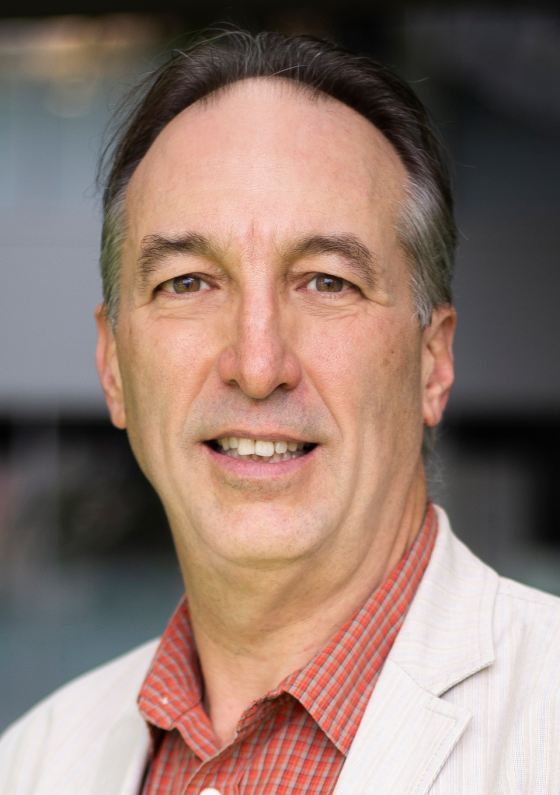
Olivier Fontaine
Chemistry Department
Understanding electrochemical reactions beyond equations, by exploring matter at the very heart of its interfaces — this is what drives Olivier Fontaine. A specialist in advanced electrolytes, he aims to design materials capable of better storing and converting energy, in the context of an urgent energy transition. For him, electrochemistry is both a fundamental science and a tool for society.
Trained at Université Paris Diderot, he refined his vision at the Collège de France by working on nanomaterials chemistry, then at the University of St Andrews, focusing on batteries. He continues his research at the intersection of complex materials and molecular electrochemistry, asking the question: How can molecular chemistry and its electrochemistry be used to better understand electron and ionic transfers in batteries?
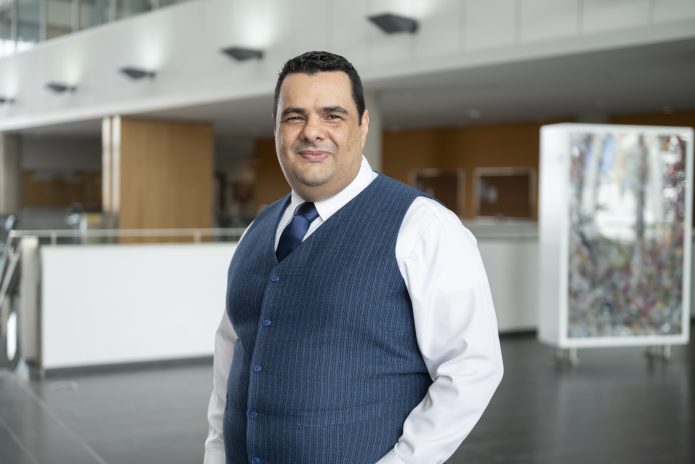
Philippe St-Jean
Trapper of the light
Department of Physics
Philippe St-Jean, holder of a Research Chair in Quantum Photonics from the Ministère de l’Économie et de l’Innovation du Québec, studies the interaction of light and matter in the quantum regime.
When a classical light bulb is turned on, billions of electrons move in all directions and their motion emits light. Philippe St-Jean is interested in the movement of individual electrons in microscopic detail, which is governed by quantum mechanics. By placing single electrons in optical cavities, which act as sounding boards for light, he is able to tailor with a high precision the photonic modes to which they couple. For example, he can engineer cavities where light flows in a single direction or is trapped for an extended period of time.
In addition to better understanding complex quantum phenomena at the single electron level, his work paves the way to the conception of more robust and precise quantum light sources, which are particularly useful in quantum cryptography. Philippe St-Jean’s work can also be transposed to trap photons in cavity arrays to simulate new materials.
Philippe St-Jean has worked at the Centre for Nanoscience and Nanotechnology at CNRS and the University of Paris-Saclay. He became a professor in the Department of Physics in the summer of 2021.
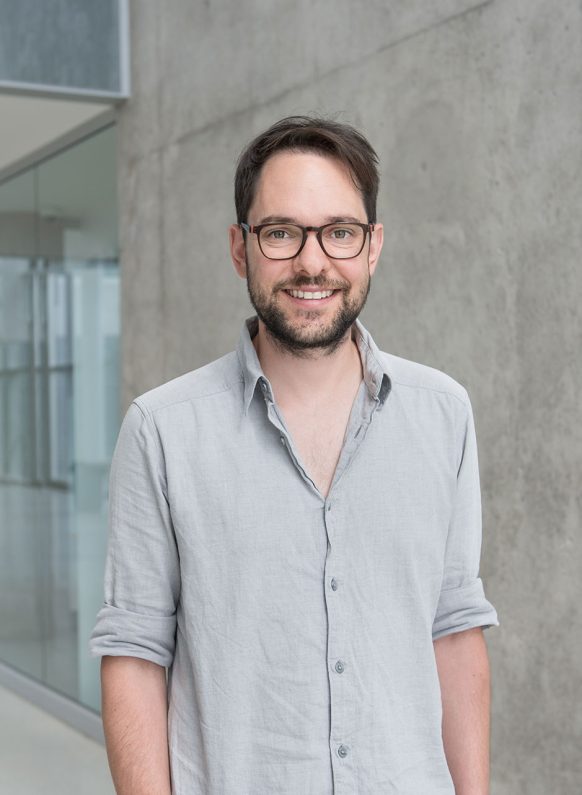
Richard Leonelli
Department of Physics
Richard Leonelli is a full professor in the Department of Physics, at the head of which he was from 2013 to 2021. A specialist in optical spectroscopy of semiconductors, he has published more than 100 papers on various materials including, in particular, quantum confinement heterostructures. He is a founding member of the Regroupement sur les matériaux de pointe and sits, as a representative of the Université de Montréal, on the advisory committee for the Québec pre-university study program in the natural sciences and on the Certificate and Engineer Studies Commission of Polytechnique Montréal.
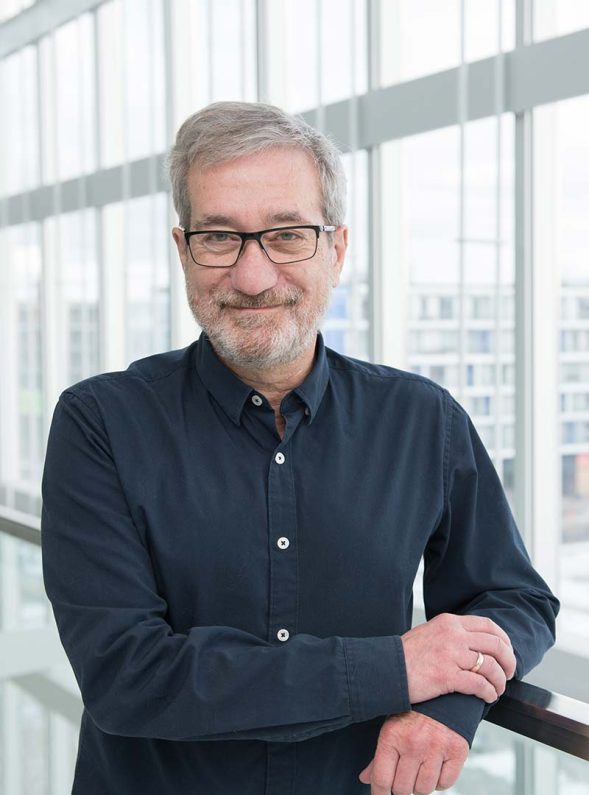
Richard Mackenzie
Department of Physics
Richard MacKenzie is a theoretical physicist with a broad range of interests. Most of his research is focused on the study of topological solitons and their applications in several areas of physics: particle physics, cosmology, condensed matter physics, and quantum information.
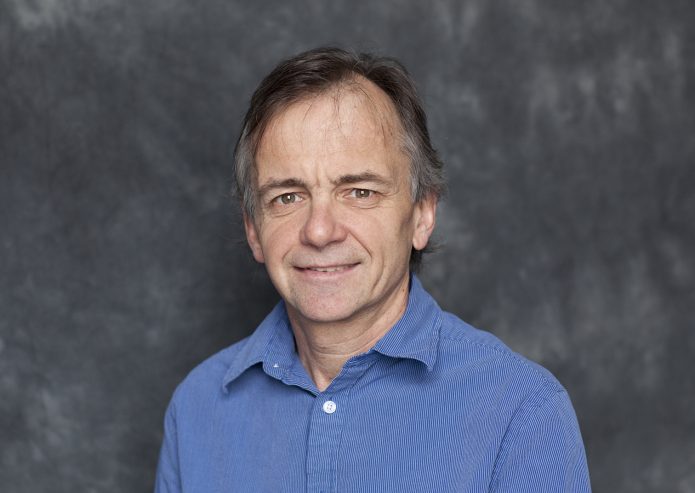
Richard Martel
Vibration imager
Department of Chemistry
Richard Martel is a semiconductor specialist who has contributed to designing a unique microscope that performs not only optical but also vibrational imaging. The hyperspectral image it produces makes it possible to observe the spectrum of each pixel using photon lasers. He is now developing an equivalent device with electrons for better, quasi-atomic resolution.
This type of spectromicroscope is part of a new generation of instruments that can generate phenomenal amounts of spectroscopic data, but analyzing the data is complex and demanding. The process could be improved by artificial intelligence. There are many applications, in particular in the microelectronics industry (production of lasers and sensors) and, more generally, in the design of sensors that use the quantum properties of electrons to generate a signal.
After earning a Ph.D. in surface science at Université Laval, Richard Martel spent nearly 10 years doing research at IBM in the United States before becoming a professor of chemistry at the University of Montreal. He is the Canada Research Chair in Electrically Conductive Nanostructures and Interfaces.
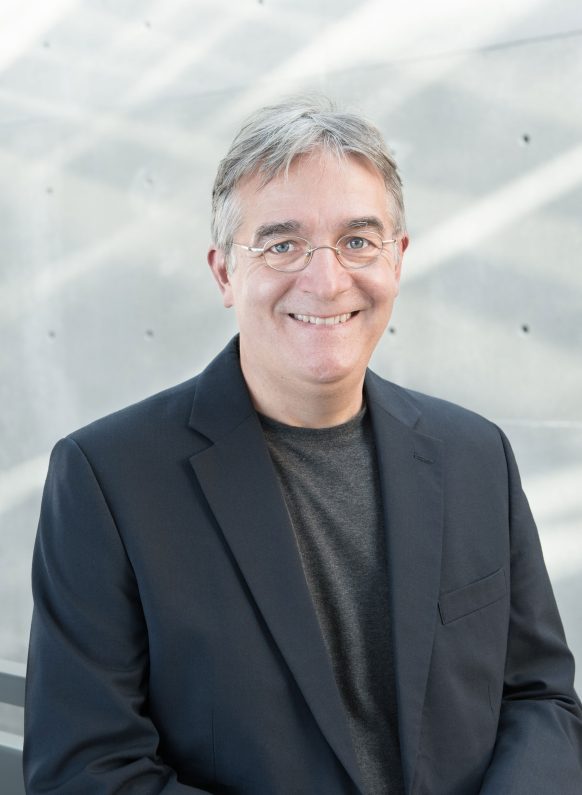
Suzanne Giasson
Department of Chemistry
Current research focuses on molecular interfacial phenomena, interactions between surfaces, and understanding and harnessing the unique properties of macromolecules (especially biomolecules and polymers) at interfaces to design new materials with surface properties that can be specifically, locally and reversibly controlled by external stimuli. The research aims at applications in various fields, including sensors and nano-actuators.
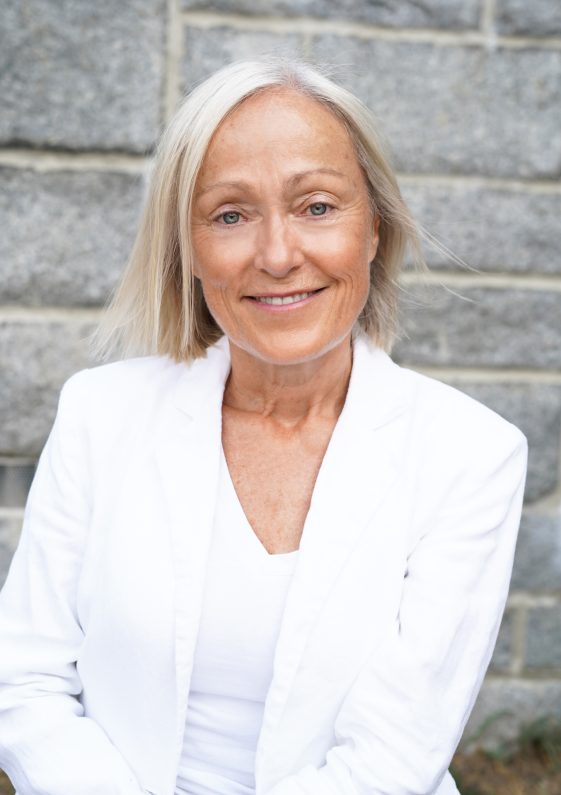
William Skene
Colour wizardry
Department of Chemistry
When you look at your smartphone, you see a host of vibrant colours. It most likely has not occurred to you that a considerable amount of research has gone into making that happen. Rationally designing and preparing compounds that emit a rainbow of colors for use in such electronic devices is a part of Professor William Skene’s research.
Pr. Skene’s research team also focuses on making materials that are both flexible and stretchable for use in organic electronic devices such as smartphones. The team’s research is paving the way for the next generation of plastic electronics that will be bendable, stretchable, and unbreakable. His team also works on developing environmental benign processes for device fabrication along with integrating renewable resources into devices. These approaches will reduce the waste generated during device fabrication and they will improve the lifecycle management and sustainability of electronics.
Pr. Skene values interdisciplinary collaborations because discoveries can be integrated into every step of the device fabrication chain from materials synthesis to processing and device upscaling.
Pr. Skene decided on a career in chemistry because he wanted to understand how things worked on a molecular level. The Winnipegger pursued post-doctoral studies in France at the Université de Strasbourg (formerly Université Louis Pasteur) before joining the Université de Montréal in 2003.
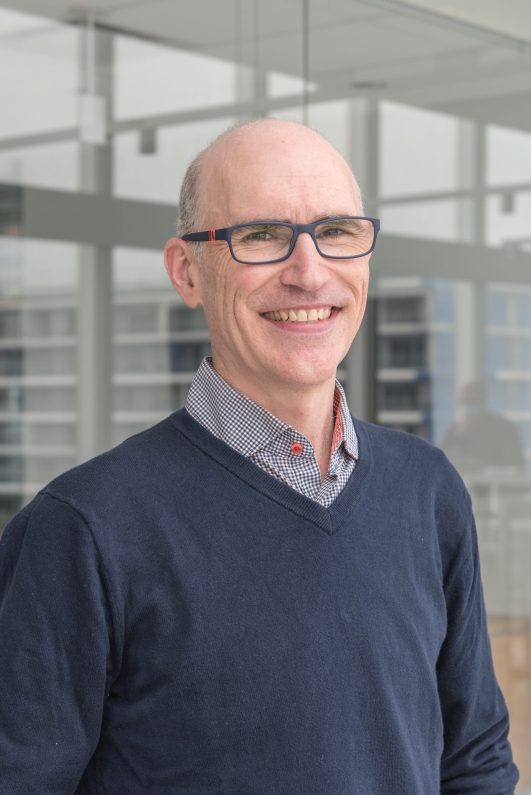
William Witczak-Krempa
Quantum theorist
Department of Physics
William Witczak-Krempa is interested in materials that display quantum properties at low temperatures. For example, some materials lose electrical resistance and become superconductors, which have important practical applications, from lossless electricity transmission to the manufacture of extremely powerful magnets.
However, low temperatures limit large-scale production. Could quantum materials be created at higher temperatures and be made more accessible to humans? William Witczak-Krempa’s team is tackling the question using a variety of mathematical and numerical tools, including artificial intelligence.
Understanding matter at the quantum level is essential for, among other things, the creation of a quantum computer, the device physicists and computer scientists dream of. Its computing power would far exceed that of any existing computer.
William Witczak-Krempa came to the University of Montreal after completing two postdoctoral fellowships, one at the Perimeter Institute in Waterloo and the other at Harvard University. He is the Canada Research Chair in Quantum Phase Transitions and a member of the Regroupement québécois sur les matériaux de pointe (RQMP), and the Centre de recherches mathématiques (CRM).

Xavier Banquy
Department of Chemistry
Pr Banquy is the Canada Research Chair holder in bioinspired materials and interfaces. His research interests encompass the study of fluids (electrolytes) and soft matter (polymers) under confinement. In recent years, his team has elucidated the molecular mechanism of superlubrication in electrolyte solutions (called hydration lubrication mechanism) and explored novel routes to design superlubricating materials. Ongoing work involves studying (poly)electrolyte solution behaviour at electrified interfaces under extreme confinement.
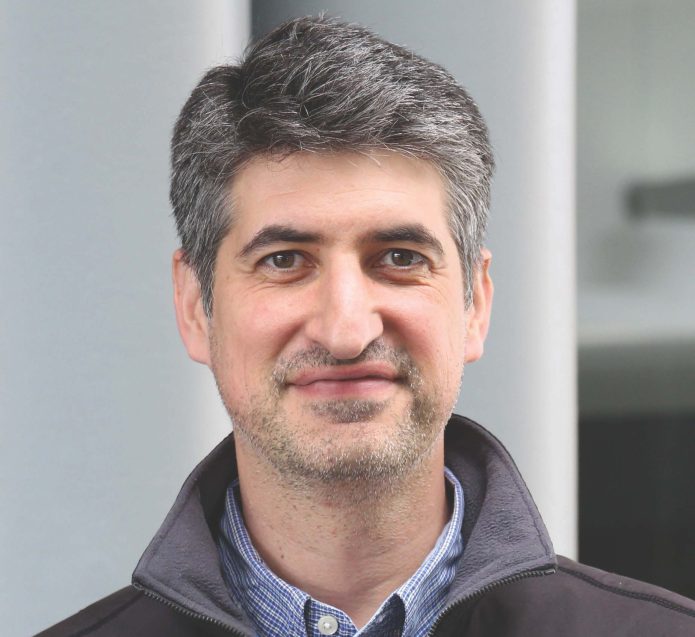
Yoshua Bengio
Computer science eminence
Department of Computer Science and Operations Research
Yoshua Bengio is a world-leading expert in artificial intelligence whose pioneering work on deep learning earned him and his colleagues Geoffrey Hinton and Yann LeCun the A.M. Turing Award in 2018. The Turing is considered the Nobel Prize of computer science.
Deep learning is a branch of artificial intelligence that exploits artificial neural networks to create new generations of algorithms that can help computers learn by themselves. In deep learning, information is processed through a sequence of operations modelled on the way the brain works, in which multiple neural layers form a deep network.
Today, neural networks are driving advances in fields ranging from natural language processing and machine translation to protein structure modeling, voice and facial recognition, robotics, self-driving vehicles, medical image analysis, drug discovery, weather simulation, and even managing power outages and vehicular traffic.
Yoshua Bengio has been instrumental in making Montreal a hub of AI research. He is the founder and scientific director of Mila, the Quebec Artificial Intelligence Institute, and the scientific director of IVADO, the Institute for Data Development. Around these two flagship AI institutions, a scientific ecosystem of more than 1,000 researchers has grown in the vicinity of the MIL campus in recent years.
Concerned about the social impact of his work and that of his colleagues, Yoshua Bengio actively contributed to the Montreal Declaration for a Responsible Development of Artificial Intelligence and co-directed the Global Partnership on Artificial Intelligence (GPAI) Working Group on Responsible AI.
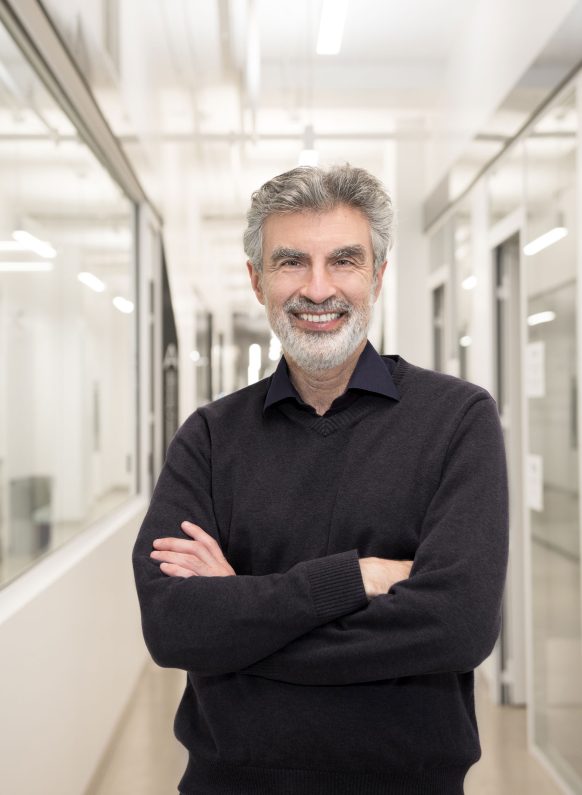
David Tiede
Department of physics
David Tiede is an Institut Courtois Postdoctoral Fellow supervised by Prof. Carlos Silva, in the Department of physics at Université de Montréal. His research project is about understanding and harnessing the complex interactions of cavity assisted hybrid light-matter states.

Farshid Effaty
Department of Computer Science
Farshid Effaty is an Institut Courtois Postdoctoral Fellow in co-direction with Prof. Bang Liu, Department of Computer Science at Université de Montréal and Prof. Leonard MacGuillivray, Chemistry Department at Université de Sherbrooke, recipient of a Canada Excellence Research Chair in Crystal Engineering for Green Chemistry and Sustainable Materials. Farshid’s postdoctoral project is entitled: Accelerated crystal engineering the topochemical alkyne-azide cycloaddition: Data-driven mechanochemical synthesis
